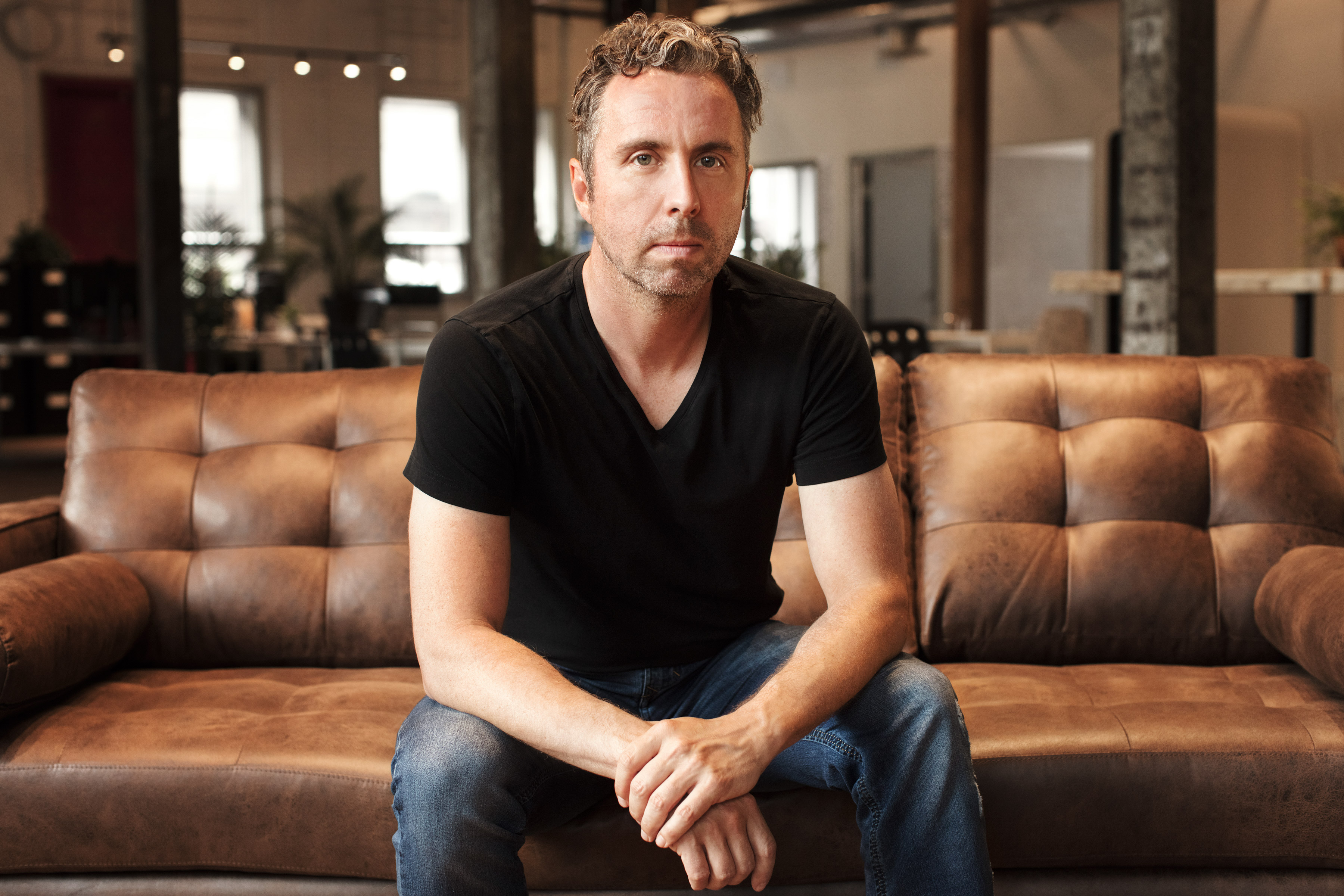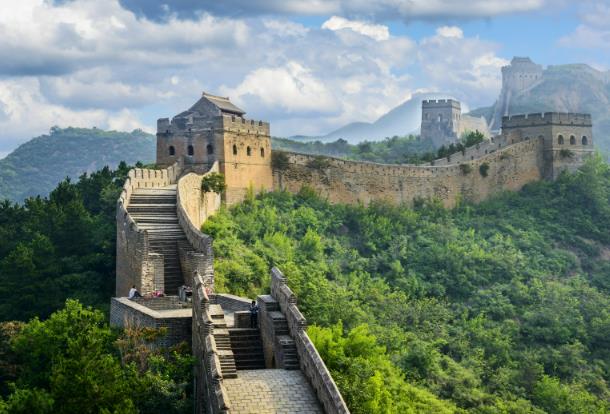Dropping out of college at an early age, never being employable, constantly jumping on the next new idea - these are just some of the traits of serial entrepreneur Frederic Lalonde, founder and CEO of travel startup Hopper.

Mr. Lalonde spent more than ten years growing the airfare prediction app into a USD 5 billion giant and expanded the company's offerings from flight booking to hotel search and reservation, vacation rental, in-destination activities, price freeze as well as other fintech products. Will Hopper rise to be a formidable competitor to online travel giant Booking Holdings or Trip.com Group? How does Hopper plan to enter the Asia Pacific market and the Chinese market?
At the 2022 TravelDaily Conference, Mr. Lalonde talked to Charlie Li, CEO of TravelDaily China, through a virtual video meeting, about his personal experience, his admiration for Trip.com Group, and his obsession with Chinese social e-commerce app Pinduoduo. He also shared why and how Hopper will become a super app for travel.

Following are excerpts of the interview, edited for brevity:
Why did you drop out of college in your earlier years?
I'm a child of the 80s and I started out as a hacker like in some of the Netflix shows that you watch. We were just stealing video games, removing the protection, copying them and selling them in the schoolyard. I was doing this when I was 14 and what happened is I got into a lot of trouble because we were using credit cards to do this and that's a federal crime and I didn't understand any of this.
It would be probably smarter to build a company than to do illegal things with my skills. So to me dropping out of school was probably an improvement in terms of a life choice. I think my parents were pretty happy when I started making money as an entrepreneur. It was a big step up.
I've been starting companies all my life. Functionally I've never had a job, I'm unemployable. All I've ever done is start companies. I'm just constantly thinking of new thing and how we solve it. Being a founder, especially a serial founder, is almost a mental illness - it's not what you do, it's who you are. You can talk to a lot of people that have started company after company, and it's just the brain never stops thinking about these new ideas.
Hopper is becoming a full-service OTA. But how are you different from Booking Holdings, Expedia or Trip.com Group?
There are a lot of small things. First of all, we've always only been an app. We don't actually have a website. We've never given Google any money. So when you hold us up to Expedia and Booking in the west, it's very very different. All of our fintech products are kind of unique, you could also hold that up as being different. Booking is sort of working on payments and Expedia is doing a little bit, but none of the two big guys have that for scale.
In the past two years we've taken about 10% of the market away from existing players and you know we're not as large as the big conglomerates but we're probably the second or third largest in every market we play in now. What is making us really gain market share apart from the fintech is that we're using the profitability of our fintech products to lower the price of travel and we're doing this through social commerce.
So I have been obsessed with Pinduoduo for the past two years. I can't tell you how many screenshots I've run through Google Translate back into English, because obviously I can't read Chinese. This idea that you can engage and share in a travel ecosystem and lower the price of what you're buying is just fascinating to me and so for the past two years we've been quietly chipping away at everything from games to streaks to social commerce features on the outside. We've been running what we call Liveops which in Asia is so normal, when you change the app icon because there's a sale. But in the west, we don't do this we don't understand this. So we've just been importing everything we can from Asia and especially China.
I just have this fundamental belief that Asia for the past decade, and China in particular, has been ahead of the west on mobile commerce. There's an understanding of key influencers, customers, and organic social growth. I'm fascinated by TikTok's commerce engine in China, how they sell directly in the social app and we think that's the future. We're evolving into a fully-fledged social commerce app.
We don't put money into Google for search and you know Expedia and Booking put five to six billion dollars into Google and they get nine billion back every year. That's a great business model, I would love that but you know we're the new kid on the block and so we have to do things very very differently to become material. In 2021 I was TikTok's largest advertiser in the US. This year our marketing budget external is almost zero we're giving all of this money, hundreds of millions of dollars, to our customers and they are promoting the app, sharing the app and so we've seen explosive growth in countries where we had no presence like Italy and Spain.
I aspire to be as much of a Chinese app as I can. The social commerce acquisition cost is not lower. We almost give the same amount of money to the customers that we would have given to Mark Zuckerberg, but the behavior of the customers is so different. When they're invited by somebody to join a group team buy, they're just much more likely to tell other people to try to earn credit and that's what creates the viral loop. Travel is a low-frequency purchase, Asia had it right: group buying is not about traveling with friends, it's about saving money! The behavior is so much better and because they go on to buy our fintech, which is high margin, we can give this back and lower the cost of travel and once you've given somebody twenty or fifty dollars on their trip, that's meaningful. They're not going to book direct, they're going to book in your app and that creates a virtuous cycle where everybody wins.
Why does Hopper want to become a super app? How will you get there?
Our customers want to buy all travel products from us. They're twice as likely to buy a home rental, they're just as likely to book a hotel with us. In fact, we're just working backward from the customer needs. So first, you have to have a full store selection everywhere. Second, you have to have the lowest price and third, it's the super app part. You need a reason for them to launch.
If you're in food delivery or ride-sharing, it's super easy. But travel is low frequency so we need to create all of these reasons for them to come. A lot of people in our demographic don't have really premium credit cards. They save for travel. So it just makes so much sense that we would help them do that, right? It has to be a super app, there's no other way to do it. It has to be a closed ecosystem everything has to be there and we have a lot of work to do.
Again I admire Ctrip. The company has been extraordinary in its China app - the Trip.com app looks more like a boring western app - but if you look at what the China app is publishing in terms of social content, the content feed on the Chinese app, it's remarkable. They've pushed the boundaries of what an OTA can be and again we're completely oblivious to this in the west. Like nobody in the west has ever looked at that app I think.
My belief is if you're going to be a digital brand, a global digital brand in travel or any meaningful category, you're going to have to have a social commerce super app and there are other examples we can go through, like AirAsia. It is fascinating that an airline would be able to build that and so we just think that's the future and what we're trying to do is to be the western leader in that.
For more content, view the video here: https://youtu.be/Xe_TIHTma2I




